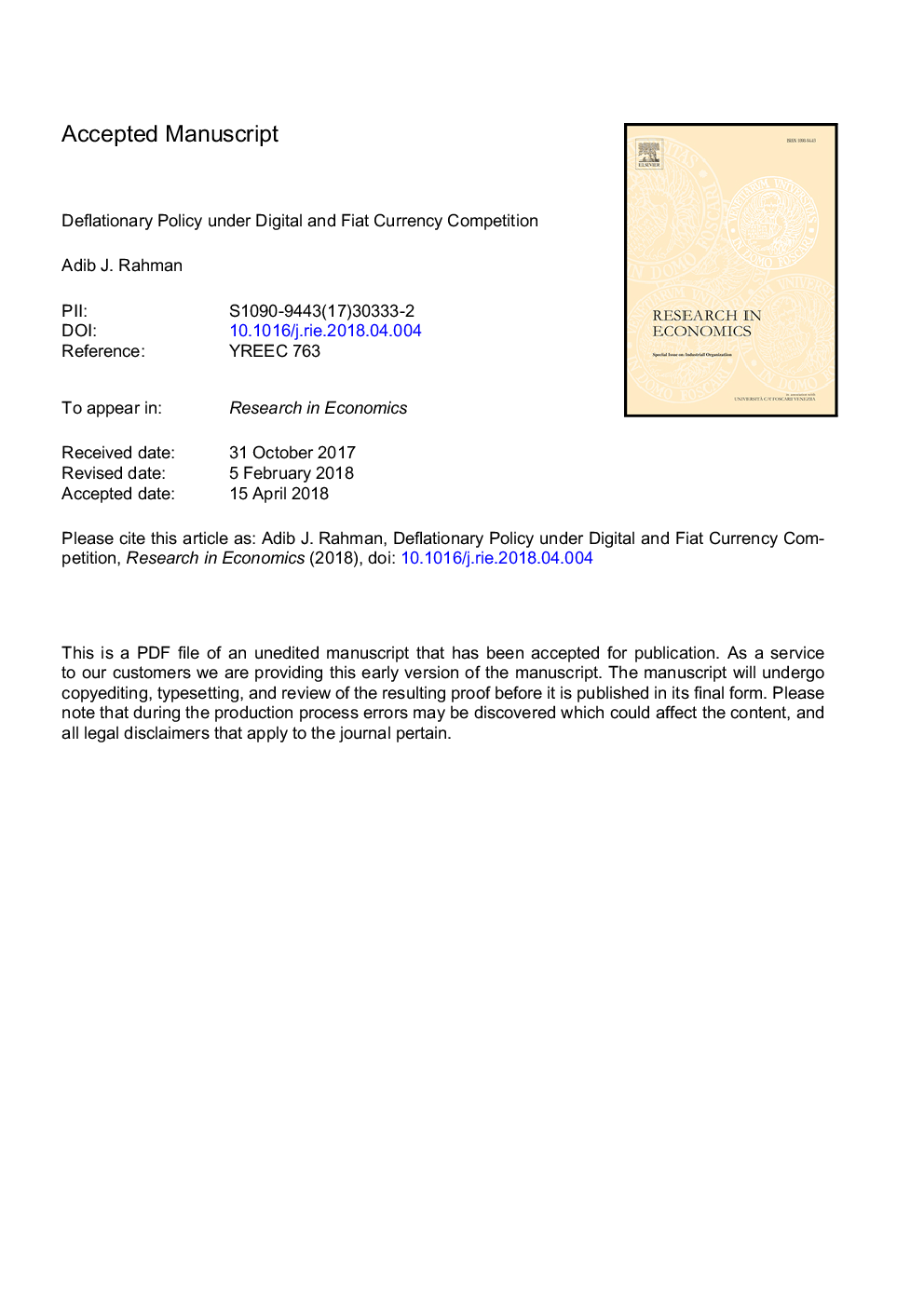| Article ID | Journal | Published Year | Pages | File Type |
|---|---|---|---|---|
| 7384020 | Research in Economics | 2018 | 24 Pages |
Abstract
I examine the implications of digital and fiat currency competition on optimal monetary policy according to the Friedman rule (a standard deflationary policy) in a Fernández-Villaverde and Sanches (2016) framework, with no search friction. Consistent with the existing literature, first, I find that monetary equilibrium under a purely private arrangement of digital currencies will not deliver a socially efficient allocation. Second, I place restrictions on the available supply of digital currencies and find that a socially efficient allocation is possible only if the upper bound on digital currency circulation is equal to the rate of time-preference, albeit some degree of government intervention is required to curb the profit-maximizing incentive of the miners. Third, I find that optimal monetary policy at the Friedman rule will be socially inefficient when digital currencies compete with government-issued fiat money. Finally, I show that the Friedman rule is a socially desirable policy only in a purely fiat monetary regime.
Related Topics
Social Sciences and Humanities
Economics, Econometrics and Finance
Economics and Econometrics
Authors
Adib J. Rahman,
